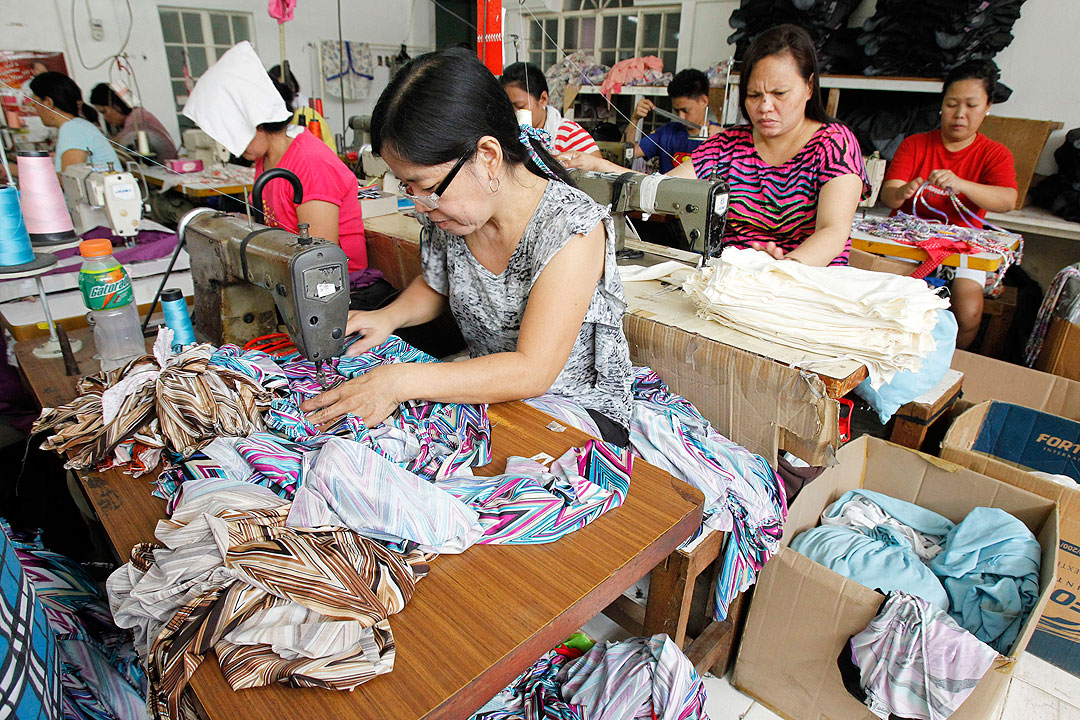Marcos vows to boost quality of jobs as Filipinos seek more work

PRESIDENT Ferdinand R. Marcos, Jr. on Wednesday vowed to boost the quality of jobs in the Philippines, after underemployment continued to worsen in September at 15.4%.
The president vowed to improve job quality “to address underemployment while bolstering job opportunities in the country,” the presidential palace said in a statement.
“Ever since we started with the economic team, even before I took office, we really concentrated on the creation of jobs,” Mr. Marcos said in the statement.
Job quality continued to worsen in September as underemployment — the rate of employed Filipinos seeking more work — rose to a six-month high of 15.4%, higher than 14.7% in August and 14.2% a year earlier, the local statistics agency said on Tuesday.
Underemployed Filipinos increased to 7.33 million from 7.031 million in August, as more than 882,000 people sought to earn more income with the spike in commodity prices due to inflation, the National Economic and Development Authority said.
But unemployment fell to 5% from 5.3% in August and 8.9% a year earlier. This means 2.5 million Filipinos were jobless, lower than 2.68 million in August and 4.28 million in September last year.
“This is a good sign,” Mr. Marcos said. “The economy is trying very hard to grow. We just have to be able to tolerate the shocks that are coming from abroad. Otherwise, the economy is moving in the right direction.”
“The Marcos administration should not overly hype the dip in unemployment figures as these only disguise huge numbers of Filipinos struggling to find decent work,” think tank Ibon Foundation said in a statement.
It said lower employment amid the drop in labor participation “could also mean more discouraged workers.”
“The decrease in the number of unemployed did little to offset this especially with the bigger decline in employed persons,” it said. “A significant number of so-called jobs are informal, with Filipinos turning to whatever work they can find to support themselves and their families.”
The government said employed Filipinos fell to 47.58 million last month, slightly fewer than 47.87 million in August though higher than 43.59 million in September last year.
Workers on average worked 39.6 hours a week in September compared with 40.5 hours in August.
Labor force participation — the share of the Filipino workforce to the total working age population of 15 years old and over — slipped to 65.2% from 66.1% in August.
IBON said job losses were mostly in wholesale and retail trade. “This could be due to increasing prices having a dampening effect on supply chains.”
By sectors, the service sector was the top employer, accounting for 58.9% of the total working population, followed by agriculture (22.5%) and industry (18.6%). Manufacturing, which added 780,000 jobs, had the highest increase to 4.45 million workers.
“While acknowledging that inflation remains to be a ‘worry,’ the president expressed optimism that the country could sustain the positive momentum with the unemployment rate, noting that accelerating job generation has been among the top priorities of his administration,” the palace said.
But IBON said the Marcos government appears to be more intent on playing up supposed employment gains rather than addressing the reality of massive joblessness.
“By acknowledging the dire job situation, it can take meaningful and effective measures to address this and at the same time help Filipinos cope such as through much-needed wage hikes and subsidies, cash assistance and support for small businesses and production sectors.” — Kyle Aristophere T. Atienza



